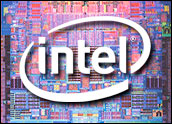
Sun Microsystems, the company whose former CEO used to denounce Microsoft as often — and as sarcastically — as possible, is now selling Windows.
The Santa Clara, Calif., IT pioneer has signed on to become a Windows Server OEM (original equipment manufacturer), meaning it will install Microsoft Windows Server 2003 in its hardware running on x64, 64-bit architecture.
Additionally, Microsoft and Sun jointly said they will collaborate “to further enable deployment of Windows Server on Sun x64 systems” and to work jointly on virtualization technologies that support interoperability of their products.
Road to Recovery
Sun, still recovering from being crushed by the Internet bubble’s burst, has embraced a more cooperative approach to dealing with its competitors. The current deal with Microsoft is an expansion of a landmark 2004 cooperation agreement between the companies.
In the new agreement, not only will Sun offer Windows Server on its x64 hardware but it said it will also provide “additional utilities and value-added software offerings to server systems carrying Windows Server.” Sun will make Windows Server 2003 available on Sun x64 systems within about three months.
Microsoft “recognizes Sun’s compelling x64 server and storage products in the market today,” the company said. The companies agreed to continue testing and validating the Windows platform on the Sun systems “for scale-up enterprise computing.”
Expanded Net TV Alliance
The companies also announced an expansion of their Internet Protocol Television (IPTV) partnership. They said they will continue collaborating to advance deployment of the Microsoft Mediaroom IPTV and multimedia platform on Sun servers and storage systems.
The deal is an example of Redmond’s commitment to 64-bit computing, said Bog Muglia, Microsoft’s senior vice president of the server and tools division. Sun’s hardware “is an excellent foundation for Windows-based enterprise solutions, such as Microsoft Virtual Server, Microsoft SQL Server, Microsoft Exchange Server and Microsoft Internet Protocol Television Edition,” he said.
The agreement will give Microsoft’s customers additional choices, Muglia noted.
Both Are Leaders
Sun’s current more cooperative business approach is part of its goal to be a one-stop shop for enterprise technology. “Sun is now a single source for today’s leading operating systems — Solaris and Windows — on the industry’s most innovative x64 systems and storage products,” said Sun Systems Group Executive Vice President John Fowler.
Sun’s customers can now “take advantage of the virtualization benefits” of both Windows and Sun’s Solaris operating system on Sun’s x64 systems, Fowler said. He suggested that Microsoft’s willingness to partner with Sun amounts to recognition of the “superior system design at the heart of our product portfolio.”
New Opportunities
News of the agreement was welcomed by some in the business of selling Sun products, including Mike Thompson, president and CEO of Groupware Technology, a Campbell, Calif., technology solution provider.
“I think it’s great,” Thompson told TechNewsWorld. “It’s going to create new opportunities for us.”
It’s important for Microsoft and Sun to acknowledge that many enterprises want to pair their products, Thompson said. “Formalizing the relationship, in essence, makes it more appealing to customers because they know that they will have support,” he said.
Burying the Hatchet
For some veterans of the Sun/Microsoft battles, its a strange new world, but one they applaud.
Laura Hughes, president of Jooven8 Marketing and Consulting, worked almost 10 years as marketing director for MOCA, Sun’s main distributor. She clearly recalls some of former Sun CEO Scott McNealy’s sharp-tongued taunts of rival Bill Gates.
“It used to be that Scott McNealy couldn’t give a speech without bad-mouthing Microsoft,” said Hughes. “It’s refreshing to see the teaming approach with a common goal in place. Sun and Microsoft are the leading innovators in the technology space. Formalizing a relationship in the server space makes sense and will further propel their ability to innovate as a team. This is a positive move for all of us.”





















































